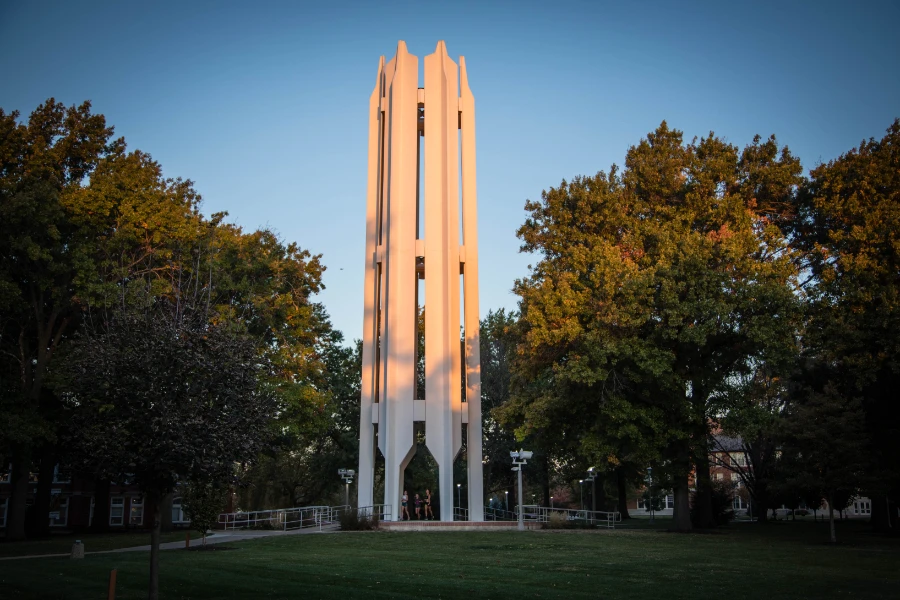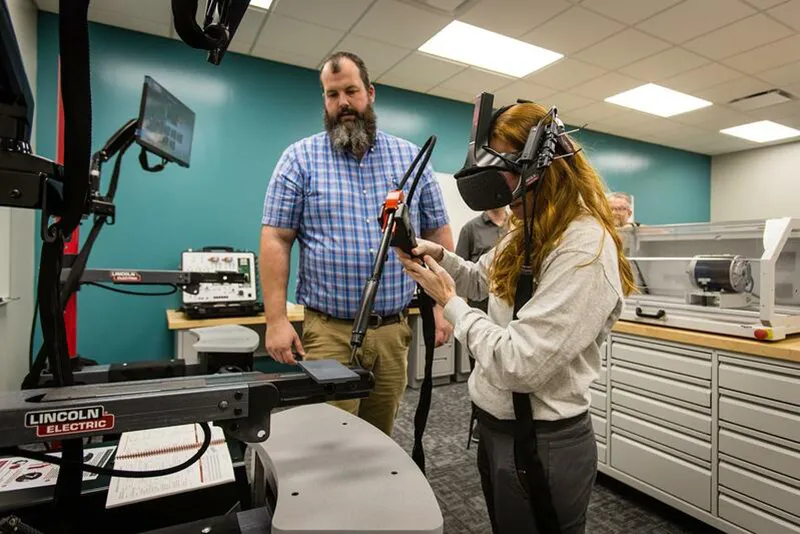Program(s) Available: B.S., Minor
Are you looking for an agricultural science education that offers more than a degree? At Northwest Missouri State University, you’ll find an ag science program that turns your passion for agriculture into marketable skills employers seek. Prepare to meet the agriculture and food industries’ demands by honing your skills at our University farm. Build meaningful connections with regional industry partners who recruit our graduates. And choose a degree in agricultural science that employers respect – 96% of our graduates find agricultural science jobs after graduation.
A 4-year degree in agricultural science is great if you have a passion for agriculture and want a well-rounded education in various agricultural disciplines. You’ll study agricultural economics, plant science, animal science and soils to prepare for a career in agriculture, farm operations or related occupations.
In addition to 58 hours of agriculture courses, you’ll complete a minimum of nine credit hours in at least three different agricultural areas including:
A minor in ag science is ideal if you’re majoring in other disciplines but want an understanding of the agricultural industry. In this 23-credit hour minor, you’ll explore the fundamentals of agricultural economics, plant science, animal science and soil science.
View the Academic Catalog for more information.
Thu, April 9, 2026
(secondary education / agricultural education)
Rod Barr
Director
660.562.1620
rbarr@nwmissouri.edu
As an ag science major, you’ll develop skills and expertise in agricultural economics, plant science and animal science, with a focus on technology. As agricultural practices evolve, you’ll begin your career with a finger on the industry pulse and the cutting-edge innovations shaping food and agriculture.
Specific jobs for agricultural science majors include:
Your Northwest education prepares you not only for immediate employment but for graduate studies in specialized agricultural fields, so you can go wherever your passion for agriculture leads you.

We offer multiple pathways to support your agricultural education. The School of Agriculture offers dedicated scholarships for students like you as well as other general academic scholarships and need-based financial aid programs. With Northwest’s commitment to affordability, you can focus on developing your agricultural expertise instead of worrying about finances.
Search agricultural science scholarships or browse all aid below.

Northwest’s agricultural science major is one of 200 majors and programs designed to help you achieve your goals. From our carefully designed curriculum to our accessible faculty members, we want to make a lasting difference in your agricultural education.
Nearly every Northwest student is involved in an agricultural organization. Join groups like Collegiate Farm Bureau or Sigma Alpha, our professional agricultural sorority, to develop your leadership skills and form lifelong friendships with like-minded peers.
As a Bearcat, you’ll join a tight-knit community that feels like family. The green and white Bearcat spirit brings the excitement of NCAA Division II athletics to life.
That’s something that I think a lot of Northwest students take for granted. Being able to see your professor in the hallway, and they recognize you and actually care for you – that’s awesome.
Monica Thornburg | Mugrage Hay and Cattle | Agriculture Science (2020)
Agricultural science, or “ag science,” is an interdisciplinary field that applies scientific principles and modern technology to agriculture and food production. By applying science to practical scenarios, ag science majors work to address real-world agricultural challenges, such as improving crop yields, managing soil health, reducing environmental impact and strengthening food security.
Graduates with a degree in agricultural science are in high demand. You’ll find opportunities across farm management, agricultural consulting, agribusiness operations, sales, marketing and government roles. Companies like Agriland FS, FCS Financial, Bayer Crop Science and the USDA recruit Northwest graduates for their hands-on experience and comprehensive knowledge of the field.
Northwest’s agricultural science degree is a bachelor’s program that includes coursework in agricultural economics, plant science, animal science, soil management and agricultural technologies. Integrating theory and practice, the degree program prepares you to provide high-quality services to the regional and global agricultural industry. You’ll graduate with versatile knowledge and practical skills to start a career in the agricultural industry.
A degree in agricultural science is your ticket to a rewarding, in-demand career path. Our graduates excel as farm managers, overseeing daily operations and long-term planning for agricultural enterprises. Many become agricultural consultants, lending their expertise on crop production, livestock management and sustainability practices. Some alumni also pursue careers in agricultural education or extension services, while others leverage their knowledge in emerging fields like precision agriculture and agriculture technology development.
As agricultural technologies advance, your expertise will remain valuable in addressing global food security, sustainability challenges and innovations in farming practices.

Our agricultural science faculty are experts in their field. They bring both academic expertise and real-world agricultural experience to the classroom, providing personalized mentorship to help you develop the skills employers seek.
Related Majors |
Latest Blogs |